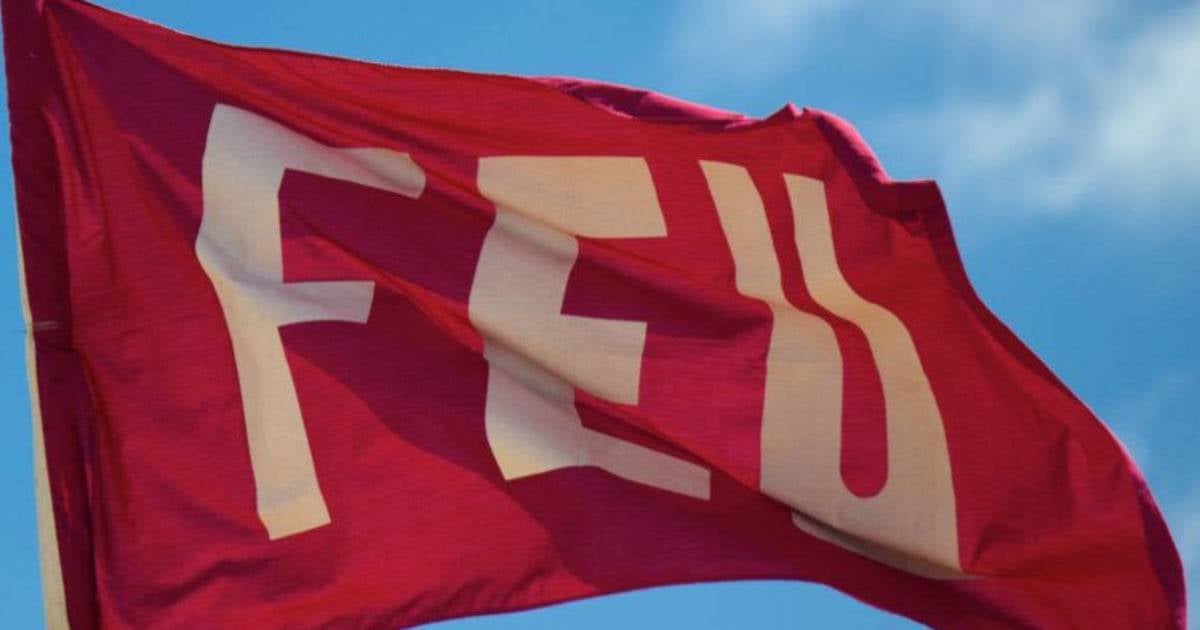Amid mounting disapproval of the internet tariff hikes in Cuba, the University Student Federation (FEU) presented a report on Wednesday containing more than 40 suggestions aimed at the Telecommunications Company (ETECSA), following discussions between the two entities. This document appears to be a political maneuver in a context characterized by student protests, class stoppages, and rising discontent among the youth. It raises the question: is this genuine student representation or disguised political control?
Wednesday's meeting, broadcast on national television, was attended by representatives from the Communist Party, the government, the UJC, and the FEU itself, orchestrated as a calming strategy after the wave of criticism against ETECSA's new pricing scheme for mobile data packages.
The proposals ranged from technical adjustments to changes in the company's communication strategy. However, the overall tone seemed more like a covert defense of the state enterprise rather than a true representation of the youth's dissatisfaction. The disconnect between FEU leaders and the majority of students, who demanded a strong stance against the "tariff hike," is evident.
Apologies and Praise for ETECSA
One of the most controversial moments came from Luis Yoel González, vice president of the FEU at the University of Pedagogical Sciences. After expressing gratitude for the discussions, he acknowledged ETECSA's efforts and urged understanding of the measure "based on the information received," thus softening the initial backlash, as reported by the pro-government site Cubadebate.
Similarly, José Alberto Almeida from Havana's FEU praised ETECSA's technical expertise and suggested that university students should be part of national solutions, aligning his speech with the official narrative.
These interventions can be seen as a betrayal of the legitimate protest voiced on social media and campuses, where class suspensions were a clear statement that connectivity in Cuba is not a privilege but a necessity.
Are the Proposals Practical Solutions or Political Maneuvers?
Among the mentioned initiatives are: reviewing the pricing policy and data packages, projects with social and economic impact, diagnosing technical failures (batteries, nodes, infrastructure), creating a crisis-time manual, and proposals for "effective communication" to engage with the public. However, there was no specific mention of an immediate tariff reduction or an inclusive redesign of internet access in the country. Binding timelines or real mechanisms for citizen oversight were also absent.
Judging by the content, the multidisciplinary group seems more like an instrument of institutional legitimization rather than a real pressure platform from the student base.
The FEU's Dilemma: Student Voice or Arm of Power?
This episode marks a new chapter in the FEU's crisis of legitimacy, an organization historically used as a mouthpiece for the country's political structures. Despite the rhetoric of "frank and open exchange," this week's events show that student leaders chose political accommodation over popular support.
Meanwhile, the majority of Cuban university students continue to face significant challenges in connecting to the internet, in a country where access remains a luxury segmented by class and geographic area.
Faced with regime pressure, the Mathematics and Computer Science Faculty (MATCOM) of the UH announced on Monday, June 9, the lifting of the teaching strike initiated on June 4, after receiving concrete commitments from the Ministry of Higher Education and ETECSA.
The FEU's report has not calmed the waters. Instead, it has shown the gap between leaders urging patience and understanding and the youth demanding real changes and a voice. This chapter makes it clear that true student representation is built not with praises and apologies, but with courage and coherence.
FAQs on ETECSA and Student Protests in Cuba
What were the main proposals presented by the FEU to ETECSA?
The proposals included reviewing pricing policies and data packages, projects with social and economic impact, diagnosing technical failures, creating a crisis-time manual, and effective communication strategies. However, there was no mention of an immediate tariff reduction.
Why did the FEU apologize to ETECSA?
The FEU, represented by Luis Yoel González, apologized as part of a conciliatory approach, acknowledging ETECSA's efforts and urging an understanding of the measures based on the information received, thus softening their initial opposition.
How did the student community react to the FEU's actions?
The student community viewed the FEU's actions as a betrayal of their legitimate protests, which were expressed on social media and campuses. Many felt that the FEU leaders opted for political accommodation rather than supporting the students' demands.
